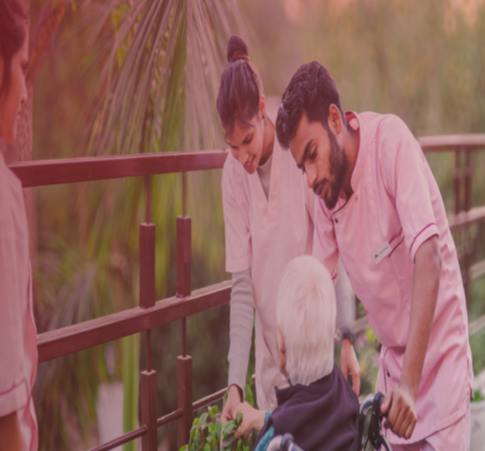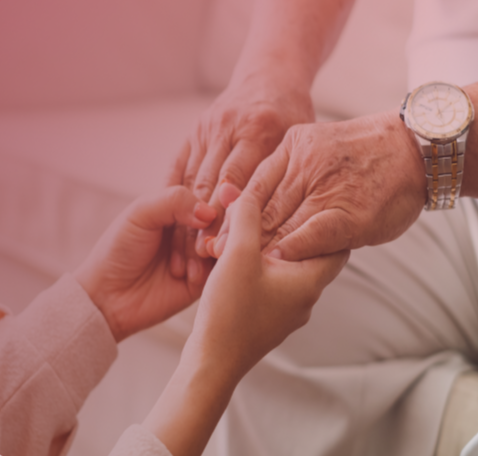Do you have elderly people at your home? Are they not able to hold their urination? Are they on a catheter? If your answer is yes, then they all are prone to urinary tract infection (UTI).
I am Anju Bobin, Senior Nurse and Training Manager at Epoch Elder Care. With my 16 years of experience, I am sharing with you some aspects and care management of UTI, which will be useful to you, as a caregiver.
Urinary Tract Infection (UTI) is a common abbreviation that all are aware of. This is common in young and old but older people have higher chances of getting UTI.
Experiencing pain and burning sensation and cloudy urine are all signs of a UTI. The infection can affect any part of your urinary system—kidneys, ureters, bladder, and urethra—however, most UTIs involve the lower urinary tract (specifically, the bladder). The painful symptoms of a UTI not only irritate the elderly, but they can lead to serious consequences if the infection reaches the kidneys.
Women have more chances of developing an infection as compared to male elderly as the urethra of a woman is close to the anus. And the urethral opening is close to the bladder. This makes it easier for bacteria around the anus to enter the urethra and travel to the bladder.
UTIs are generally caused by a type of bacteria called E. coli that resides in our digestive tract but when it enters our urinary tract.
Do You Have Any Idea Why Our Elderly Develop UTIs More Than the Young Population?
As age advances the muscles of the bladder and pelvic floor become very weak causing urine retention or incontinence. The bacteria remain in the urine present in the urinary tract, they grow and colonize gradually and later develop UTIs in the elderly.
Another contributing factor is an indwelling catheter in old age people. Other than these we have to watch out if these conditions are present in the elderly. Diabetes mellitus Enlarged prostate (In males) Bedridden Kidney stones.
How Can You Identify a UTI in an Elderly as a Primary Care Provider?
Confusion or delirium Increased or urgent urination Fever Painful urination Nausea Urine with abnormal color or odor Pelvic pain Sudden changes in behavior or agitation Poor motor skills or dizziness.
In many cases when you are a caregiver to the elderly with dementia, you may not be able to find all the symptoms in the elderly because they lack communication skills, so watch out for any behavioral changes. Healthy people display physical symptoms like burning when urinating, elderly patients may not complain of such pain. If not detected early, the infection can lead to serious health problems.
Tips for Preventing UTIs in Elderly
Hydration is the only key factor helping to prevent UTIs in the elderly. Drink at least 1.5 liters to 2 liters of water a day Use cranberry juice or tablets. It is suggested by a research paper published in NCBI that daily consumption of 200ml-300ml of cranberry juice cocktail can prevent 50% of the recurrences of UTI and can reduce bacteriuria (https://www.ncbi.nlm.nih.gov/pmc/articles/PMC4863270/) Limit the use of caffeine Avoid cleaning or wiping from back to front (especially for elderly women) Use cotton underwear and change on daily basis or when required Keeping the genital area clean and dry Avoid catheterization if not required.
Tips to Prevent UTI If the Elderly Are on a Catheter at Home
Always do handwashing before and after every procedure Always keep the urobag below hip level to prevent backflow of urine to the bladder As a caregiver please watch that the catheter tube should not be folded at any point in time else it will cause urine backflow Perineal care once a day daily around the catheter and more frequently if the elderly are suffering from incontinence Cleaning the rectal area thoroughly after the elderly passed their motion Empty the urobag every 8 hours or whenever it is full Changing the catheter every 14 days if the regular catheter is inserted and if the silicon catheter is inserted change in 1 month.
What Happens if a UTI is Untreated?
If UTI is not treated, it will cause permanent damage to the urinary tract.
How are UTIs Treated?
UTIs are treated with antibiotics Antibiotics should be taken for a week or two so that the infection gets cured If the kidney gets infected then antibiotics are given for more than a week.
Every primary caregiver at home has questions about what should be incorporated and what should be avoided if the elderly is diagnosed with UTI. Here are some of the tips.
Food to be included:
A higher fiber diet including lentils(dal), nuts, beans, whole grains, and oats Eat probiotic-rich foods like greek yogurt which are available in the market easily nowadays Eating cranberries, and blueberries is helpful. Drink cranberry juice which should be sugar-free Fish oil with omega-3 fatty acids is good. If you are a vegetarian then take walnut, chia seeds, and flax seeds that are readily available in the Indian market.
Food to be avoided:
Avoid coffee, cold drinks, and alcoholic beverages Do not eat spicy foods Don't eat acidic fruits like orange, lime, or lemon.
As a Senior Nurse & a Training Manager, I believe that prevention is better than cure. In our Epoch Elder Care facilities, we have elders who are in the age group of 75-100. Our elderlies are also prone to develop UTIs.To decrease the morbidity rate caused by this infection, continuous training is given to our staff. Training is given to our care attendants and nurses to identify the symptoms in the elderly such as a sudden change in behavior, complaints of pain, and changes in toilet habits like frequent urination. We apply various preventive measures like frequent diaper changes, giving catheter care to the elders, and also keeping them hydrated by giving them flavored drinks. Hygiene is another important tip that helps in prevention. So, here at our Epoch homes, we make it a habit to do perineal care daily. If the elderly has a catheter, we make sure that we do proper catheter care and ensure that during the insertion procedure all aseptic techniques are applied to prevent CAUTI (Catheter-associated urinary tract infection). Our elders who are living with later stages of dementia face difficulty in conveying their urge to urinate. So, on regular intervals, we do take them to the toilet and help them with toileting.
Urinary tract infections are very common. Anyone living with or caring for an elderly family member should be aware of the potential for UTIs. Knowing how to avoid a UTI and knowing what symptoms to look out for can make all the difference in an elder’s quality of life. P.S.: Never ignore the signs of infection in your elderly loved ones!













